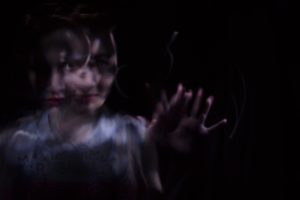Losing It
On Monday, I drove my old Subaru to work and parked. It was unusually warm, so I decided to leave my insulated winter gloves and parka in the car. I got out, used the key fob (as always) to lock the car, put the key in my right-hand pants pocket, and walked into the building.

I went down the stairs and entered the pool, met by the bright light and lovely (to me) smell of a clean and well-maintained indoor pool. I exchanged greetings with my coworkers, set my bag down on a chair (a bag with a couple of handy outside pockets the hospital gave to every employee), removed my jewelry and put it in a small pouch, and took off my boots and socks while chatting with my friends.
I went into our small “break room,” which consists of a towel rack, a handful of lockers, a sink, a fridge, and a microwave, and set my bag on the floor between a plastic chair and a crate in which we collect bottles for recycling. I fingered the key fob and key in my pocket. I usually keep that key in my coat pocket, but I hadn’t brought my coat in. We only have one key to the Subaru, so I’m careful with it. I could leave it in my pants pocket, but things frequently slide out of my pockets as I change in and out of my clothes at work, so that didn’t seem safe. I decided to put the key in an outside pocket of my bag. I tossed it into the pocket, stripped off my clothes, folded them hastily, and dropped them onto my bag. I put on my lifeguard shirt and shorts, got my gear out of my locker, and went to work.
During the following five hours, I taught a private lesson, contributed money towards buying flowers for a recently bereaved colleague, lesson planned for my group swim lesson later in the week, lifeguarded, worked at the desk, did some cleaning, and checked chemicals.
It was a good day.
We had a couple of late families come in, so closing was a little chaotic. We went through closing procedures, put on our street clothes, clocked out … and I couldn’t find my key.
I couldn’t find my key.
Where was my key?
I emptied everything out of my bag (not much). No key. It wasn’t in my pants. It wasn’t in my coat, because my coat was in the car. It wasn’t on the floor.
Where was my key?
I remembered tossing it into the outside pocket of my bag, which I hadn’t moved all shift. Nobody but staff had been in the break room. I know with absolute certainty none of my colleagues would ever deliberately take anything that didn’t belong to them. However, most of us do use the same bag, although we’ve personalized them in small ways with pins, colored carabiners, etc.
My colleague checked his bag, which hadn’t been near mine. No key.
It was late. I was tired. We wanted to go home. My coworker has a long commute and had worked a much longer shift than I had. He offered to take me home, but it would have added miles and time to his already lengthy drive, which I was unwilling to do.
There was nothing for it but to call my partner and ask him to come and get me.
What, you’re asking, is the point of this long, rambling, boring story? We’ve all lost keys.
The point is that losing the key sent me right over the edge so completely and so quickly it wasn’t until hours later that I realized losing the key was a trigger for a much deeper upset.

For much of my life I’ve doubted my own perceptions and experience. I’ve internalized a lot of gaslighting and projection. I’ve accepted I’m hypersensitive, dramatic, attention-seeking, too intense, too curious, too imaginative, too sensual and too passionate.
My second husband (not the father of my children) was abusive. During that marriage, when I was in my 30s and the kids were pre-teens, I reached a point of despair and desperation that led me to find a therapist, ostensibly for marriage counseling. My deeper, more honest agenda was I wanted a professional assessment of my parenting.
My husband had me convinced that I was bad with money, I fantasized and made up stories about things that never happened (like being abused), I was frigid and/or a nymphomaniac (he could never make up his mind), and I was impossibly difficult to live with. I got a lot of the “you’re an unfit parent” routine from the boys’ father and his family, too.
My own experience of myself was quite different, but it didn’t matter, because I’d given up trusting my own experience in childhood.
In spite of being an “unfit parent,” I loved my children more than anyone or anything, and I was willing to give their father full custody if that was best for them.
I didn’t think that was best for them.
But I couldn’t trust what I thought, or felt, or remembered. I knew that.
So, I thought I would get an objective, professional evaluation.
We went to the therapist. We went. Once. My husband spent 50 minutes telling the therapist how difficult and crazy I was. I said I wanted an evaluation of my parenting and some guidance in healing our troubled marriage.

The therapist told my husband he need not return, (implying I was clearly the problem), and rescheduled with me. I spent the week steeling myself, finding a lawyer to draw up paperwork to transfer custody, and otherwise trying to wrap my head around losing my boys and whether it was worth it to try to help myself. Could I be healed? Was I worth fixing? Did anything matter anymore? What would I say to the boys? How in God’s name could I go on without them?
When I walked into the second session, the therapist was angry. I deserved it. People were frequently angry with me. He pointed to a chair, sat knee-to-knee with me, and demanded to know why I was with a man who was destroying me.
I was blinded by the realization he wasn’t angry with me. He was angry for me. He actually cared. About me!
“Do you want to live or die?” he asked brutally.
“I want to live,” I said without thinking, the warrior in me suddenly coming to life. I hadn’t known until then that it was true.
We spent the next six weeks planning an exit strategy from my marriage, and then he cut me loose. He told me I was fine; I didn’t need his services. What I needed was to get away from my abuser.
From the moment I lost that key at work, I went obsessively over every move I’d made from pulling into the parking lot to the realization the key was gone. I thought I knew exactly what I’d done. I could remember it, see it in my mind’s eye. I’m a creature of habit. There was nothing new or different about that day and my routine. I wasn’t tired, sick, or distressed.
Yet the key was gone.

I was at once plunged back into that old feeling of madness, that I live in some kind of sick alternate reality others don’t inhabit. I remembered every mocking or contemptuous comment I’d ever heard about my sensitivity, my intuition, my imagination, and my drama. I thought about how disconnected and isolated I’ve often felt; crazy people are, after all, impossibly difficult to deal with. I remembered the terrible confusion of having a clear memory but being told it never happened, I made it up. And what kind of a monster would make up such disloyal, ugly lies?
All the work I’ve done in the last decade; my creative life; the processing, healing, and reclaiming of myself and my power, were swept away as if they’d never happened. I was not to be trusted, and I couldn’t trust myself. In fairness to my coworkers, students, pool patrons and patients, and most of all my partner, I should crawl away, institutionalize myself, disappear.
Because I lost my car key.
While all this emotional chaos was going on, my partner and I made complicated plans to get a new key programmed for the Subaru (towing the car to the nearest dealership an hour away, dealing with the $100 cost for said programmed key, etc.), and my teammates scoured the office and break room at work looking for the key. Meanwhile, a major winter storm looms on the horizon, adding more pressure around timing, scheduling, and the necessity for winter driving.
All the while I watched myself, wondering if my memory is to be trusted, if my intention is to be trusted, if any of my perceptions are to be trusted. How could I remember every step of what I did, and yet the key was not there? What did it mean? What had I done? Do I have black holes in my memory and don’t even know it? Did I make up a story about what I did that had nothing to do with reality? Was the key still in the car after all? Had I not locked it, though I remembered doing so?
Had all those voices in the past been right, and I’ve been living in a fantasy for the last few years, believing myself to be rational, sane, even well-balanced and intelligent?
Maybe I should have given up the kids, after all? Maybe I was (am?) an unfit mother. Perhaps I shouldn’t be working with children.
Yesterday afternoon, my partner drove me to work. I went to the Subaru and stood by the locked driver’s door. The key was not in the car. My partner verified it, as I no longer trusted the evidence of my own senses. The car was locked, just as I remembered. My parka and insulated gloves were on the passenger seat, just as I remembered. My partner and I walked across the parking lot, exactly as I’ve done hundreds of times before, with me reciting each action along the way. We went in the building, down the steps and into the pool.
No one had found the key. Everyone was concerned. Nobody seemed to understand that I was crazy; no longer to be trusted. We talked about where we’d looked. People asked questions. We looked in various places again. Wearily, I said that I’d thought I’d thrown the key into the outside pocket of my work bag. Everyone rummaged in the outside pockets of their work bags without much hope.
A shriek from one of my colleagues. Unbelievably, she held out the key on its fob in her palm.
For a moment, I had an intense sense of vertigo. It seemed unreal. What was real? Was that my key? Was I really seeing it? Or was I making this up, too? But every face around me was filled with relief. They were all smiling. They saw it, too. I took it, held its small, familiar weight in my hand. The key was there. It was found. It was real.
So, maybe, I thought dazedly, I’m not crazy? I’m okay?
We realized my coworker’s bag had been sitting on a chair in the break room. I had tossed my bag onto the floor next to the chair. In a moment of non-crazy but very normal human inattention, I tossed the key into the outside pocket of her bag rather than mine. The bags, as I said before, are identical. I got in the pool for a private lesson, my coworker went home with her bag, and that was that.
The key wasn’t there because the key wasn’t, in fact, there. I didn’t make anything up. My memory was true. My reality was real. I simply tossed the key into the wrong bag.
Today I feel exhausted, vaguely embarrassed, and relieved beyond words. I’m not crazy. I can trust myself. My perceptions and experience are real. I’m rational (most of the time — but I recognize my own irrationality when it’s happening!) I know the difference between reality and fantasy.
I’m okay. Again. Still.

On the other hand, it didn’t take much to knock me over — hard. It’s difficult to overestimate the power of our old wounds. My confidence is not as strong as I’d like it to be. I don’t know if it ever will be.
My partner was the first person who ever told me to trust myself. It sounded cruel the first time I heard it. Any number of people could have told him I’m not to be trusted. I certainly didn’t trust me. I could speak in detail about my perceptions and experience, but I didn’t, because to do so resulted in an emotional beating, and I believed the people around me could see ugliness and abnormalities in me I was too (stupid? crazy? arrogant? confused? cowardly? mean? selfish? disloyal?) to identify. Yet my partner (fool that he is) stubbornly persists in trusting me, even after living with me for five years.
In his eyes, all I misplaced was a car key. I felt as though I’d permanently lost myself.